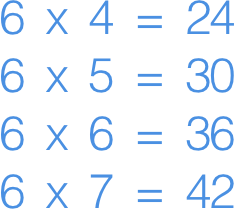Anxiety and Emotions related to learning Mathematics
In his biography Revelations, (2012) internationally renowned British climber Jerry Moffat refers to his not so successful school days “by the age of 11 years I could only just about read, and my writing was poor. Numbers were a complete mystery.”
Why did Jerry Moffat, have such a tough time with mathematics?
Chinn an experienced teacher and leading expert in understanding why mathematics can be difficult explains in Beliefs, Anxiety, and Avoiding Failure in Mathematics (2012) that there are embedded beliefs about the way in which the mathematics curriculum is often designed and taught. For example, the fundamentals such as times tables and number facts are best learnt when children are young. Informal surveys by Chinn across the UK indicate that around 50% of ten year olds fail to achieve this goal. For many children mathematics becomes a repetitive failure from an early age.
Moffat in Revelations, succinctly describes attitudes and beliefs about memory in the world of education.
Some people go through school and they remember everything they are taught. They never have to revise and they sail through exams. These are the people who are seen as smart people. But often they are just lucky enough to have a very good memory for what they are taught. It doesn’t necessarily mean that they are smarter than people who don’t - or can’t - remember those things.
Chinn explains that anxiety has a negative effect on working memory making recall of number facts and times tables even more difficult. For many this anxiety, if not dealt with, is likely to persist. This will mean that everyday living, which involves numerical calculations or mathematical concepts, will be difficult and reduce employment chances and life opportunities.
Butterworth, neuroscientist and leading expert on the subject of dyscalculia, in Dyscalculia Screener emphasizes the severe emotional side effects of pupils who struggle with early numeracy or mathematical concepts.
When interviewing young pupils about their mathematics lessons he received the following comments in Dyscalculia Screener “when I don’t know something, I wish that I was like a clever person and I blame it on myself. I would cry and I wish I was at home with my mum and then I won’t have to do any maths. I could come back to school when it was the end of maths. I’m not good, and I don’t like it when my friends say that.”

